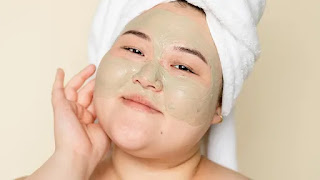Maintaining proper skin care is not just important for appearance; it is also critical for your general health. Good skin may make you feel more confident, defend you from the environment, and promote general health. Nonetheless, a lot of individuals deal with typical skin problems including dryness, acne, and wrinkles, which can have an impact on one's physical and emotional health. It aims to offer you a better understanding of your skin and useful information on how to take better care of it. Everything from modern treatments and everyday routines to lifestyle variables and nutrition will be covered.
Understanding Your Skin's Basics
The epidermis, dermis, and hypodermis are the three primary layers of the skin, making it a complicated organ. Every layer has a distinct purpose, ranging from pleasure and hydration to protection. Understanding your skin type—oily, dry, combination, or sensitive—is essential to taking care of it. Acne is more common on oily skin, whereas flakiness and irritation are more common on dry skin. Both dry and oily patches can be seen on combination skin, and sensitive skin reacts quickly to both environmental influences and products. Skin conditions such as eczema, acne, and hyper pigmentation are frequently caused by a combination of environmental exposure, stress, heredity, and food. Maintaining healthy skin requires an understanding of these factors.
Essential Daily Skincare Steps
A consistent skincare regimen is required for good skin. After cleansing to remove oil and dirt, tone your skin to restore equilibrium to its pH. Use a moisturizer to seal in the moisture on your skin. Always remember to apply sunscreen to prevent UV damage and premature aging. Use a broad-spectrum sunscreen with at least SPF 30 for the most protection, and reapply as needed during the day.
Advanced Skincare Tips
Dead skin cells are removed via exfoliation, which makes the face smoother and more radiant. Physical exfoliants, like scrubs, and chemical exfoliants, like AHAs and BHAs, are the two categories. Both can enhance the tone and texture of the skin. Rich in active components, serums and treatments address certain issues with the skin, such as dark spots or wrinkles. Apply the ones that work best for your skin type and issues after cleaning but before moisturizing. Hyaluronic acid is a major component of hydration, which is essential for healthy skin. It draws moisture to the skin, keeping it moisturized and plump, minimizing the look of fine wrinkles, and enhancing the general health of the skin.
Popular Professional Skin Treatments
Advanced treatments for a variety of skin issues are provided by professionals include chemical peels, microdermabrasion, and laser therapy. These procedures can cure pigmentation problems, lessen wrinkles, and enhance texture. They could, however, also produce unfavorable side effects including inflammation or redness. It's important to pick a dermatologist or clinic that you can trust. Seek for reputable experts with a good track record and make sure they employ modern, safe methods and tools.
Conclusion
Understanding your skin type, sticking to a regular skincare regimen, trying out innovative treatments, and making wise decisions regarding professional care are all necessary to achieve healthy, glowing skin. You may improve the health of your skin and get the rewards of a confident, beautiful complexion by including these habits into your everyday routine. click https://www.victoriandermalgroup.com.au/ for more information on skin treatments.


Good.
ReplyDelete